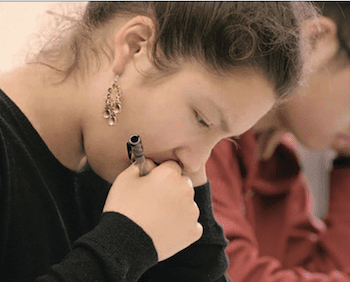
Top Misconceptions About Private Schools
By Paige Berardo
Private schools are only for the wealthy. Parents from every walk of life send their children to private schools. For many families, private school is a deliberate choice that demands significant life trade-offs.
Where good public schools exist, private schools are unnecessary. Healthy communities provide a wide variety of choices to their families to meet the needs of every individual.

Having strong public and private school choices enables every child to attain the education that is best for them—and it encourages both systems to do what they do best and not try to be everything to everybody.
Private schools lack diversity. The promise of education is to prepare students for their future. This promise cannot be authentically fulfilled in a homogeneous environment. Diverse communities create opportunity for different experiences and perspectives to ignite intellectual curiosity, provide opportunity for innovation, and fuel compassion and understanding.
Students who graduate high school today are tomorrow’s leaders: they will shortly enter a global work-force. Private schools are intentional in how they cultivate their community. They create opportunity through all aspects of their systems—from financial aid programs, curriculum and program development, HR and hiring practices, professional development and more—to build a community that fulfills the promise in a manner consistent with its mission. Yes, some schools are more progressive than others; do your homework when looking into them.
Private schools don’t attract qualified faculty. It is true that by law you do not need a teaching credential to teach at an independent school (because independent schools are not governed by the California Department of Education like public schools are), however you will find credentialed teachers at private schools as well as a high percentage of advanced degrees in their subject of expertise.
Private schools are only for children who have learning differences or who don’t fit in at public schools. While there are specialized schools that cater to students with unique learning abilities, it is not the case that every single one caters to students with learning differences.
Private schools are only for really smart kids who need accelerated learning options. Like the answer above, there are some independent schools that cater to accelerated learning models however this is generally a specialized school, and not all schools.
All private schools have a religious affiliation. Private schools can be operated by a non-governmental, for profit, not-for-profit, religious or non-sectarian organization(s)— meaning they can be faith-based or not. Independent schools are also private schools in that they are not- for-profit entities funded by tuition and or donations. The key difference is that they are run independently by a board of trustees and follow their unique mission.
Private schools have no accountability / aren’t regulated. Private schools go through a rigorous accreditation process that is conducted by an agency such as the Western Association of Schools and Colleges. These agencies are internationally known and highly regarded and often collaborate with the state Department of Education as is the case between WASC and the California Department of Education. Private schools must perform to the standards expressed in their accreditation, and more importantly, to the standards of their community, to whom they are ultimately beholden.
Private school kids are entitled or snobby. See answer 1. My son’s peers at school are some of the most down to earth, good-hearted and sincere individuals he’s ever known. Not a hint of chip on the shoulder. A school’s culture is certainly specific to each, so it’s worth visiting the campus to get a feel for it yourself.
Private and Independent: What’s the Difference?
Private schools can be operated by a non-governmental, for profit or not-for-profit, or religious or non- secular organization(s). They are funded by fees, donations, the organizations that operate the school, or some combination thereof.
Independent schools are not-for-profit entities funded by tuition and or donations and run independently by a local board of trustees.
Neither private nor independent schools receive public funding for their general education program and both are accredited by an agency ap- proved by the state.


You May Also Like

This Theater Group Delivers Miracles Every Week
January 1, 2019
Positive Parenting Awareness Month: Ask Nicole January 2019
January 1, 2019

